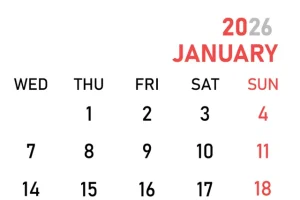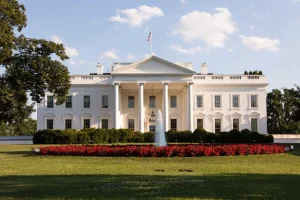FCC Set to Implement Lead-Generation Changes
UPDATE: At the FCC’s Open Agenda Meeting on December 13, the Commission voted 4 to 1 to adopt the rule requiring one-to-one consent for lead generation. Commissioner statements on the matter can be found here. In its December 18, 2023 Order, the FCC increased the grace period for compliance from 6 months to 12 months after publication in the Federal Register, thereby likely giving impacted businesses until very early 2025 to become compliant. CompliancePoint will continue to track and keep our readers informed of this and other measures taken by the FCC.
After months of speculation about where the Federal Communications Commission (FCC) would ultimately land in its quest to “close” what it calls “the lead generation loophole,” the Commission appears set to, among other things, revise its “definition of express written consent making it clear that consent must be to one seller at a time [emphasis added] and the seller must be logically and topically related to the content of the website on which consent is obtained.” At first glance, this appears pretty ominous for those who generate and sell leads as well as for sellers who purchase leads. However, there’s a lot more to unwrap here, especially in terms of scope and applicability. This move is among several items on the agenda to be discussed and voted on at the FCC’s December Open Commission Meeting scheduled for Wednesday, December 13, 2023, and there is no reason to believe the measure will not be adopted. We’ll provide a background, examine what the proposed lead-generation rule actually says and who it applies to, and identify some takeaways. Then we will wrap up by including some other actions being taken by the FCC.
How We Got Here
Both the FCC and the FTC have set their sights on the process where a lead generator obtains consumers’ contact information (usually on “comparative shopping” websites) while informing them, often not so conspicuously, that any number of sellers from a hyperlinked list of hundreds if not thousands of “marketing partners” may be contacting them. Exacerbating the whole thing is the fact that many “robocalls” or “robotexts” the consumer may receive are not directly related to the nature of the products or services being promoted or sought on the website.
Late last year, the FCC issued a ruling after investigating Urth Access’ robocall campaigns related to multiple partners, stating, “We find that listing more than 5,000 ‘marketing partners’ on a secondary website is not sufficient to demonstrate that the called parties consented to the calls.” Then, in February of this year, the FCC released a Report and Order and Further Notice of Proposed Rulemaking, that gave rise to the current order at issue. It proposed banning “the practice of obtaining a single consumer consent as grounds for delivering calls and text messages from multiple marketers on subjects beyond the scope of the original consent.” Many in the industry thought (and hoped), that the FCC would opt for a middle ground approach, e.g., by allowing a specific number of sellers to perhaps be identified in consent language and/or otherwise ensuring callers are logically and topically associated with the website that solicits consent.
In the meantime, this past May, the Federal Trade Commission (FTC) made its similar position known, at least relative to prerecorded messages by updating an FAQ response in its “Complying with the Telemarketing Sales Rule” to read: “The TSR requires the seller to obtain permission directly from the recipient of the call. The seller cannot rely on third-parties to obtain permission.” Also, in July, the FTC announced its “Operation Stop Scam Calls” robocall sweep in which it targeted certain practices of a couple of lead generators, referring to them as “consent farms.”
Finally, on November 22nd, the FCC announced its intent to discuss and vote on this measure (and others summarized below) stemming from its February NPRM at its upcoming December meeting, as noted above.
What does the Current Proposed Rule Say and Who Does it Apply to?
The proposed final rule states:
“The term prior express written consent means an agreement, in writing, that bears the signature of the person called or texted that clearly and conspicuously authorizes no more than one identified seller to deliver or cause to be delivered to the person called or texted advertisements or telemarketing messages using an automatic telephone dialing system or an artificial or prerecorded voice [emphases added]. Calls and texts must be logically and topically associated with the interaction that prompted the consent and the agreement must identify the telephone number to which the signatory authorizes such advertisements or telemarketing messages to be delivered.”
This means, as currently written, the rule will be limited in scope only to those who deliver a call or text with an “automatic telephone dialing system” (ATDS), including live calls, or prerecorded voice. In the post-Facebook v. Duguid world, many courts have deemed most modern-day dialing/texting platforms do not constitute an ATDS under the TCPA. The FCC further (and significantly) states in its commentary: “Further, callers and texters may avail themselves of other options for providing comparison shopping information to consumers, e.g., manually dialed or non-prerecorded or artificial voice calls or texts, email, or information displayed directly on the third-party website.” By “manually dial,” the Commission likely means dialing with a “non-ATDS” platform. But does this mean that lead generators who will only sell leads to callers who manually dial or sellers who purchase leads that will only be manually dialed are excluded from this rule and can maintain the current process? We’ll have to wait and see what it means or even if there will be further tweaks to the rule.
Key Takeaways
Regardless of whether you are a business that uses an ATDS or not, CompliancePoint recommends that all lead generators and lead purchasers pay close attention to this rule.
- First, a word of caution: companies who buy leads from lead generators and dial them in a non-ATDS fashion based on the provision discussed above could still be exposed to litigants (think serial plaintiffs) and have to prove their dialing platforms do not constitute an ATDS.
- If you generate and then sell leads, it appears you could probably have an even bigger responsibility in determining how your buyers are dialing, given the FCC’s penchant for holding others in the chain liable. The safest approach would be to adhere to the FCC’s vision that foresees situations where consumers are presumably presented with comparative shopping information about sellers and then affirmatively opts in (checks an unchecked box) to hear from a specific seller with clear and conspicuous consent language. If the consumer wishes to hear from an additional seller, they would have to opt in and provide separate consent for that engagement.
- If you are a lead purchaser, the conservative approach would be to ensure that you are purchasing leads where the consumer has affirmatively opted in to hearing from you specifically.
Other Elements Slated for Action
All told, this current effort to “combat illegal text messages” includes a Report and Order, Further Notice of Proposed Rulemaking, and a Waiver Order, which include several elements that on any other news day are worthy of their own analysis. Besides the lead generation piece discussed above, the Report and Order would also:
- Require mobile wireless providers to block all texts from a particular number when notified by the Commission of illegal texts from that number.
- Codify/reinforce that the National DNC Registry extends to text messages, consistent with most court opinions, as well as long-standing CompliancePoint advice.
- Encourage providers to make email-to-text a service that consumers proactively opt into
The Further Notice seeks comment on:
- Additional text blocking options, including requiring originating mobile wireless providers to block texts from a particular number when notified by the Commission of illegal texts from that number or risk all their texts being blocked.
- The current state of text authentication, as the FCC looks to create an authentication process for text messaging, like STIR/SHAKEN protocols already in place for calls.
- The traceback process for texting and whether to adopt a requirement for mobile wireless providers to respond to traceback requests from the Commission and law enforcement.
- Requiring mobile wireless providers to make email-to-text an opt-in service.
Finally, the Waiver Order would allow mobile wireless providers to use the Reassigned Numbers Database to determine whether a number has been disconnected after the date of illegal texts in the Commission’s notification to avoid blocking of texts from reassigned numbers.
To learn more about the FCC’s lead-generation rule changes, listen to our podcast.
CompliancePoint has the team and services to bring your marketing campaigns into compliance with these lead-generation changes all applicable regulations, including the TCPA, TSR, Do Not Call lists, and all state telemarketing laws. Contact us at connect@compliancepoint.com to learn more about how we can help.
Finding a credible expert with the appropriate background, expertise, and credentials can be difficult. CompliancePoint is here to help.





